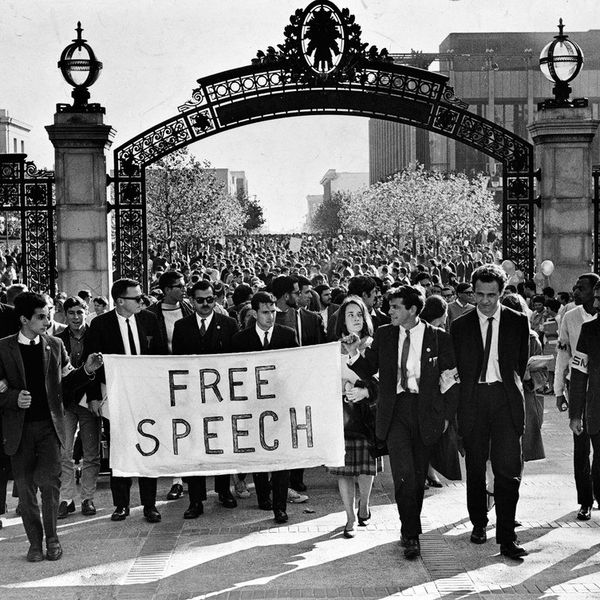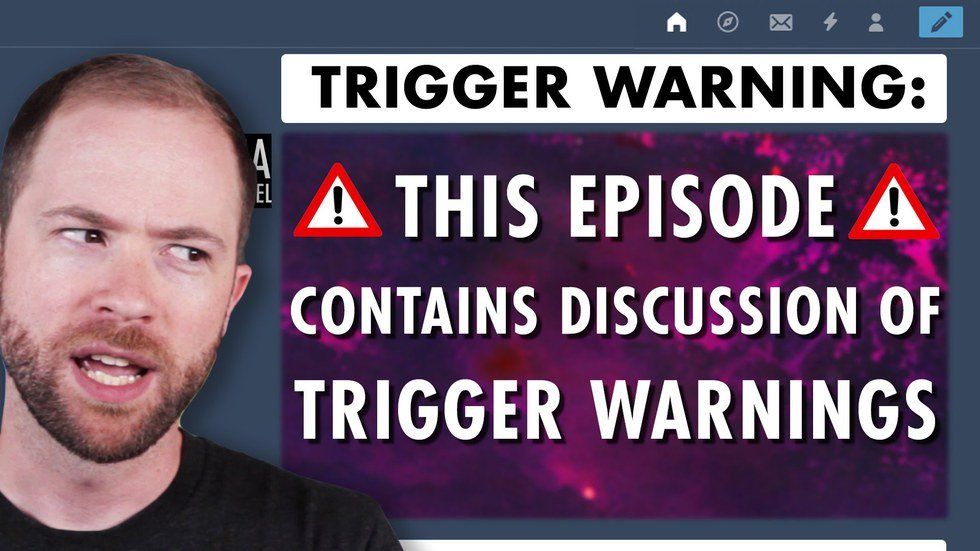Recently, the University of Chicago issued an explicit announcement to incoming students that the school officially condemns the use of trigger warnings. In a letter to the class of 2020, John Ellison, dean of students, wrote, "Our commitment to academic freedom means we do not support so-called trigger warnings."
Publications such as the Washington Times ran this story with headlines such as “Millennials Will Be Shocked!”
But will we, really? The concept of “triggers”, and warnings thereof, is a fairly new one that did not even begin to emerge until the 1980s. At that time, allies of the American veteran forces finally succeeded in labeling “shell shock” (or what Britain referred to as the punishable offense “cowardice”) as Post-Traumatic Stress Disorder.
The recognition of PTSD as a legitimate psychological issue prompted an enormous surge in military healthcare: 190,000 veterans sought care for PTSD in 2003. By 2014, the number increased to 540,000.
While there are many theories on why this number is climbing, one of the few definite factors is that losing a friend on the battlefield exponentially raises one’s chances of trauma.
What does this have to do with millennials and trigger warnings?
With PTSD, buried memories resurface as flashbacks. The memory of trauma exists below the surface of consciousness, ready to be triggered.
Veterans aren’t the only ones with PTSD—kids who lose parents at a young age or suffer abuse, victims of domestic or sexual assault, and car accident victims face higher rates as well.
The idea of trigger warnings may seem silly, but they are rooted in tested, widely-accepted science. Belittling the concept of psychological triggers not only disrespects rape victims and other victims of physical abuse who suffer from PTSD, but it disrespects American veterans as well.
Write me off as a typical millennial, but while leading conservatives such as Rush Limbaugh and Matt Walsh joke about trigger warnings and those who request them, I really don’t think mocking veterans or rape victims is the way to go.
Another common issue on college campuses is suicide, a theme in some classic novels. If a college student has lost a roommate or loved one to suicide, they are at a much higher risk of PTSD, and can avoid flashbacks by simply skipping that class discussion.
As one professor wrote in the Times, Dean Ellison is suppressing free speech in the name of free speech. It’s a professors’ prerogative if they want to warn their students before they read texts involving rape, suicide, etc., but in his letter, the Dean limitswhat professors can say in their own classrooms.
What does a trigger warning look like in practice? It looks almost exactly like a system America has long accepted; that is, the Motion Picture Association of America’s movie rating system. Films advertise whether they contain excessive violence, nudity, or other content that a person might not wish to see.
The use of warnings has not delegitimized or “ruined” movies. In the real world, after all, we frequently decide which movies we do and don't want to watch.
As another example, when television host Jimmy Fallon suffered an injury called "ring avulsion", he suggested that viewers not Google the term unless they can handle graphic images of dismembered human body parts. It was simply a heads-up for those who would prefer not to see graphic images.
Similarly, if a class will view material that contains explicit depictions of torture, rape, or other objectionable content - or if the day will be spent discussing those subjects - the syllabus or professor can caution students beforehand.
What's funny is that the conservatives decrying trigger warnings as signs of weakness also tend to be Christians, like Matt Walsh. At Duke University, some freshmen skipped reading the award-winning graphic novel Fun Home because, in their words, the graphic sexual images violated their Christian conscience.
If millennials are condemned for requesting a warning label, why don't we see condemnation of this situation? After all, students defied their professors upfront to the point that the curriculum had to be adjusted for the students' wishes.
According to conservatives, that is the ultimate doomsday scenario for politically-correct culture. Yet none declared that conservative Christians are unfit for academia.
I'm not saying that religious protection is a bad thing, or that Christians should be forced to read explicit books.
But I am saying that is hypocritical. Further, it is morally wrong when victims of assault or those who have lost loved ones to suicide don't also fit the acceptable criteria for opting out of an explicit classroom reading, and become subjects of media mockery instead.
It's hypocritical that the right wing specifically claims that "liberal" demographics, such as feminists, try to to protect their "fragile" feelings with content warnings, while overlooking conservatives that also demand accommodations.
Are veterans weak or unfit for academia if they request not to view a violent movie that may provoke flashbacks from years of service to their country?
Should you be forced to sit through lengthy class discussions that may prompt panic attacks when you could simply read a different book?
And my final question: are college presidents, professors, and media pundits who have not suffered trauma qualified to make the judgment call on that?





















